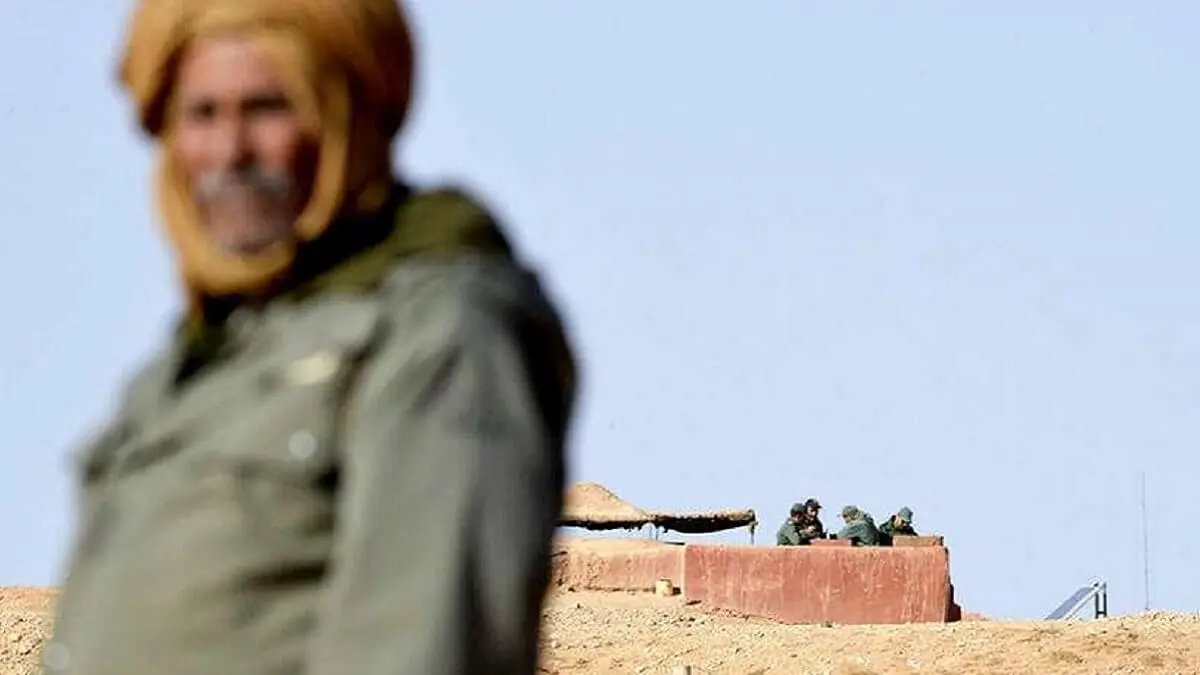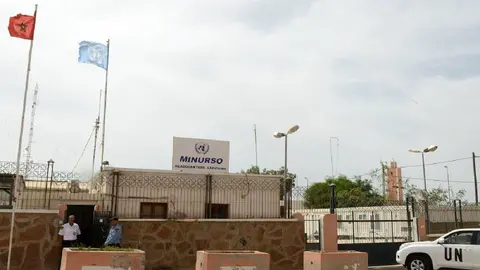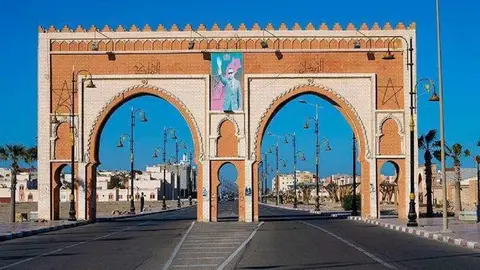Unpacking Biases: A Critical Analysis of the Crisis Group’s Report on Algeria-Morocco Tensions

However, the analysis contained in the report appears to be skewed and suffers from several critical biases, which ultimately undermine its credibility and impartiality. It begins with a flawed premise that Morocco’s position on Western Sahara stems from an ambition to revive “Imperial Morocco.” This simplistic framing disregards the historical context, the development-driven initiatives Morocco has implemented in Western Sahara, and Algeria’s own aggressive policies, which exacerbate the conflict.
Furthermore, the portrayal of Algeria as a victim and a well-intentioned regional player contradicts its track record of military dominance, strategic provocations, and active involvement in the Western Sahara dispute.
The report's characterization of Morocco’s development projects in Western Sahara as “pressure” fails to acknowledge their purpose and impact. Under King Mohammed VI, Morocco has invested heavily in infrastructure, education, healthcare, and renewable energy to improve the quality of life in the region. These efforts, far from being coercive, are aimed at fostering economic growth and social stability.
The Crisis Group’s narrative dismisses the tangible progress achieved through these initiatives, instead framing them as part of a coercive agenda. This selective interpretation reveals a lack of balance in its analysis.
Another glaring omission is the failure to critically examine Algeria’s overreaction to Morocco’s rhetorical comment on Kabylia.
Algeria’s decision to sever diplomatic ties with Morocco in response to a single statement underscores its hypersensitivity to internal dissent and its use of external threats to distract from domestic challenges. The report amplifies Algeria’s grievances while neglecting to highlight its double standards. For example, Algeria’s support for self-determination in Western Sahara contrasts sharply with its suppression of Kabylia’s aspirations for autonomy. This inconsistency, which Morocco’s comment sought to expose, is conveniently ignored in the report.
The report perpetuates a false equivalence in its discussion of the arms race between the two nations. Algeria has consistently maintained one of the largest defense budgets in Africa, allocating $23 billion to military expenditures in 2023 alone. By comparison, Morocco’s defense spending has been more modest, focusing on strategic modernization rather than stockpiling advanced weaponry.
The Crisis Group’s framing of the arms race suggests parity between the two countries, an assertion that is not supported by the available data. Algeria’s proactive military buildup, often framed as defensive, reflects its broader regional ambitions rather than a response to Morocco’s initiatives.
The report also downplays the Polisario Front’s role in destabilizing the region. The Polisario’s blockade of the Guergarat passage during the COVID-19 pandemic disrupted vital trade routes and prompted Morocco to intervene to restore stability.
Instead of acknowledging Morocco’s efforts to maintain regional order, the report characterizes this intervention as a violation of the ceasefire. Such distortions diminish Morocco’s legitimate actions and amplify the Polisario’s narrative. Furthermore, the depiction of the conflict as a “war of attrition” overlooks the reality of Morocco’s effective neutralization of Polisario rocket attacks, primarily through drone technology. The exaggeration of Polisario’s capabilities creates a misleading portrayal of the conflict’s dynamics.
Morocco’s engagement in the Sahel region is another area where the report exhibits bias. The claim that Morocco’s proposed corridor to link Sahel countries to the Atlantic is an opportunistic response to Algeria’s declining influence disregards the country’s long-standing commitment to regional integration.
Morocco’s initiative is part of a broader strategy to connect landlocked Sahelian nations to the Atlantic, fostering economic growth and stability. The report minimizes these efforts, instead portraying Algeria’s reactive measures as innovative. This persistent bias undermines the credibility of the report’s analysis.
The historical narrative presented in the report is equally problematic. The assertion that King Mohammed V and King Hassan II pursued a vision of “Imperial Morocco” lacks substantiated evidence.
Historical records indicate that Morocco’s support for Algeria’s independence was driven by anti-colonial solidarity and a commitment to regional unity, not territorial expansionism. The report’s framing of the Sand War of 1963 as a calculated move by Hassan II to weaken the Moroccan left oversimplifies the geopolitical and historical context. The conflict stemmed from Algeria’s refusal to honor pre-independence agreements regarding territorial disputes, not from internal Moroccan politics.
The Crisis Group’s portrayal of Algeria’s involvement in the Western Sahara conflict also warrants scrutiny. The report glosses over Algeria’s instrumental role in supporting the Polisario Front, providing it with military, financial, and diplomatic backing. Algeria’s expulsion of Moroccan citizens in 1975 is presented as a benign act of solidarity with the Sahrawis, overlooking its significant humanitarian and geopolitical repercussions. The expulsion, termed the “Black March,” forcibly displaced thousands of Moroccan families, violating principles of international law. Such actions cannot be framed as mere political gestures without acknowledging their devastating impact.
The report further misrepresents Morocco’s decision to propose an autonomy plan for Western Sahara as a unilateral abandonment of the UN-mandated referendum process. This interpretation neglects the practical challenges that rendered the referendum unfeasible, including disputes over voter identification and eligibility. Morocco’s autonomy plan, introduced in 2007, was a pragmatic response to these obstacles and received international support as a viable solution to the conflict. By ignoring these contextual factors, the report undermines the legitimacy of Morocco’s proposal and the broader efforts to resolve the dispute.
Algeria’s use of energy resources and airspace as political tools is another area where the report falls short. The closure of the Maghreb-Europe Gas (GME) pipeline and Algeria’s decision to restrict its airspace to Moroccan aircraft reflect a pattern of leveraging strategic assets to exert pressure on Morocco. These actions, which have significant implications for regional stability and energy security, are presented without critical analysis of their motivations and consequences. The report’s failure to address Algeria’s historical reliance on such tactics reveals a lack of depth in its examination of the bilateral tensions.
The Crisis Group’s discussion of media narratives further illustrates its bias. While acknowledging aggressive rhetoric from both sides, the report disproportionately focuses on Moroccan sources, neglecting Algeria’s state-sponsored disinformation campaigns. Algeria’s control over its media landscape has enabled it to disseminate anti-Moroccan propaganda, shaping public perception and fueling hostilities. The omission of this context skews the report’s analysis and downplays Algeria’s role in exacerbating tensions.
The report’s treatment of external actors and their influence on the conflict also raises questions. Algeria’s diplomatic reactions to Spain’s endorsement of Morocco’s autonomy plan for Western Sahara are framed as principled stances on self-determination. However, Algeria’s broader involvement, including its support for the Polisario Front and its manipulation of historical narratives, contradicts its claims of non-involvement. The report’s selective focus on Morocco’s actions, while downplaying Algeria’s contradictions, weakens its credibility.
In conclusion, the Crisis Group’s report on Algeria-Morocco tensions, while ambitious in scope, suffers from significant biases and omissions. Its reliance on unsubstantiated claims, selective interpretations, and a skewed narrative undermines its objective of providing a balanced analysis. A more comprehensive approach would require acknowledging the complexities of the conflict, including Algeria’s proactive military buildup, its instrumental role in supporting the Polisario Front, and Morocco’s legitimate efforts to foster regional development and stability. By addressing these shortcomings, future analyses can contribute to a more nuanced understanding of this enduring rivalry.



